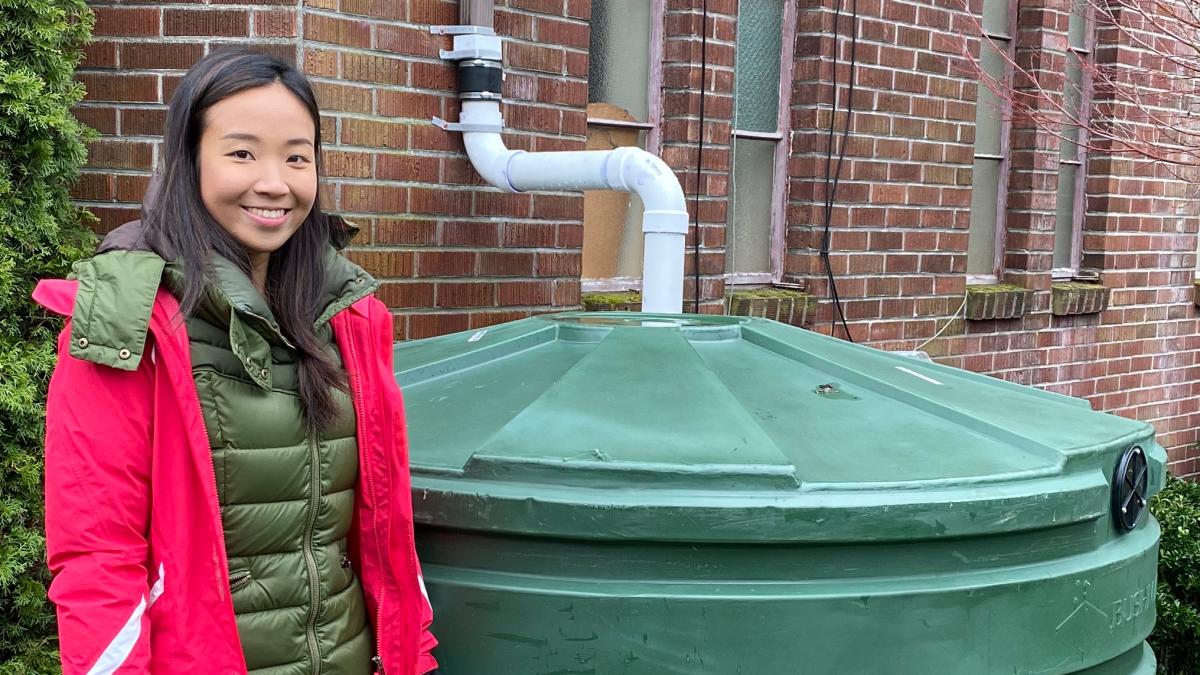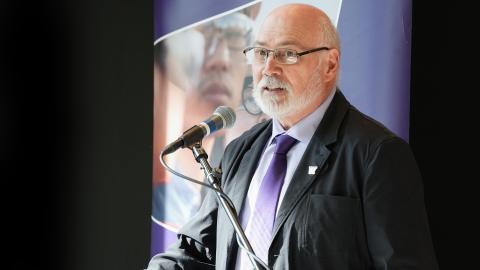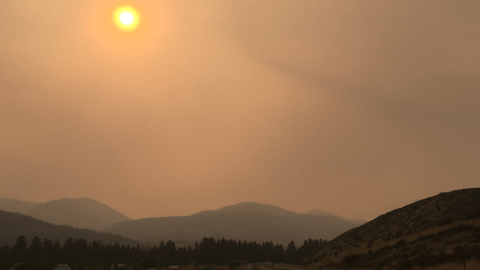Joycelyn Chui, an MPH student in the UW Department of Environmental & Occupational Health (DEOHS), is one of two recipients of this year’s Russell L. Castner Endowed Student Research Fund, which supports student research in environmental health. We recently spoke with Chui about her “Restaurant 2 Garden” project in Seattle’s International District, her thesis research and her passion for environmental health.
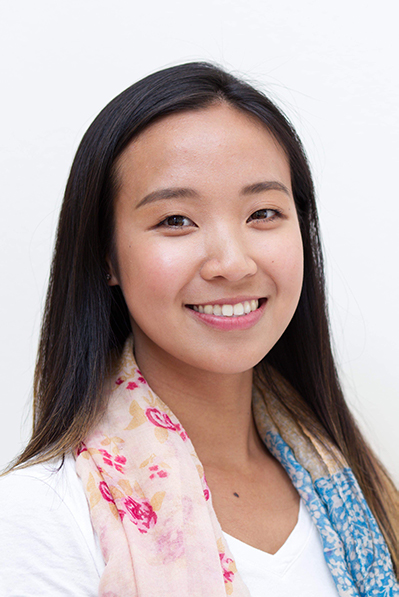
How did you decide to get your MPH in environmental health?
After graduating with a BS in fisheries from UW, I worked for several years at Environmental Coalition of South Seattle (ECOSS), a local nonprofit serving immigrant and refugee communities. I also speak Cantonese and Mandarin, so I was able to deliver environmental education and knowledge to people who speak these languages in King County.
That was really fulfilling and meaningful. But at some point, I felt like my hands were a little bit tied, because I can only do so much. Depending only on public education and outreach, how many of me is needed to make that change?
I came back to school because I realized I need to change that system and break down some of the barriers for community members to be able to make choices that are more environmentally friendly. I chose the MPH program in environmental health because it’s community based, which I felt was needed, especially as Washington and King County are getting more and more diverse.
Congratulations on your Castner Award. What will you use the funds for?
The funds will be used toward a project called Restaurant 2 Garden. When I was working at ECOSS, I did a lot of outreach to restaurants in Seattle’s International District on behalf of Seattle Public Utilities. I was doing compost education—restaurant owners have to pay a fee for a company to haul away their food waste.
At the same time I met a friend who was working at the Danny Woo Community Garden in the International District. She told me the elder gardeners in the garden make their own compost tea, and there was a screaming need for compost. Meanwhile, the restaurants I was working with needed to get rid of their waste at a cheaper rate.
We realized it was a perfect opportunity to keep resources local. Through my practicum project advised by DEOHS Associate Teaching Professor Tania Busch Isaksen, we're trying to develop a system to locally process food waste from the International District into compost for the Danny Woo community gardeners, who are mainly elder Asian and Pacific Islander immigrants, so the restaurants don't have to rely on a third party to pick up food waste and the gardeners don’t have to buy compost.
This way we are also reducing fossil fuels, because a lot of trucks are needed to transport all these materials. And we are trying to locate a more streamlined compost system at the community garden, in a neighborhood that has experienced environmental racism and injustice. We hope the system will also serve as a public education platform. Waste, especially food waste, is quite removed from our daily lives.
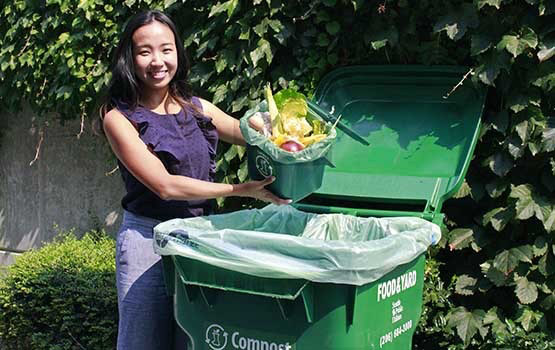
What is the focus of your thesis?
I’m looking into the health and working conditions of early childhood educators in Washington State, because this industry and this group of workers are often neglected. They are disproportionately women, particularly younger women, and immigrants, especially women of color, and their needs often get brushed under the rug.
In addition to a survey to understand their health, working conditions and COVID challenges, we will be going to nine centers statewide to collect in-person observation data on their work exposures. It’s the first study of its kind in the US.
For example, we are looking at how long they kneel on the floor and carry kids in positions that might strain their muscles, and how often they use chemicals and are exposed to bodily fluids.
It’s been interesting to see the effect of the environment on the workers’ experiences. We went to two child care centers in Seattle. One place had more trees and a bigger garden, and the teachers and the kids were way more relaxed in that environment.
I'm grateful that I get to work with my advisor, DEOHS Professor Noah Seixas, because I didn’t have too much exposure to occupational health in my previous job, and Noah is such a great mentor and has a lot of knowledge in this area. And since the study population is often marginalized, amplifying those voices is immensely important for policy changes. In fact, some local agencies are working with our study team to start that policy change process.
Funding: Castner Award, New Economy Washington Frontline Community Fellowship.
